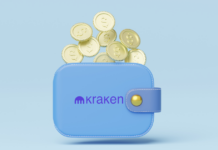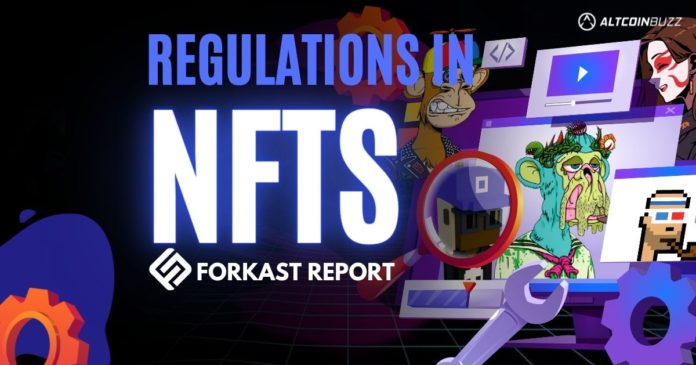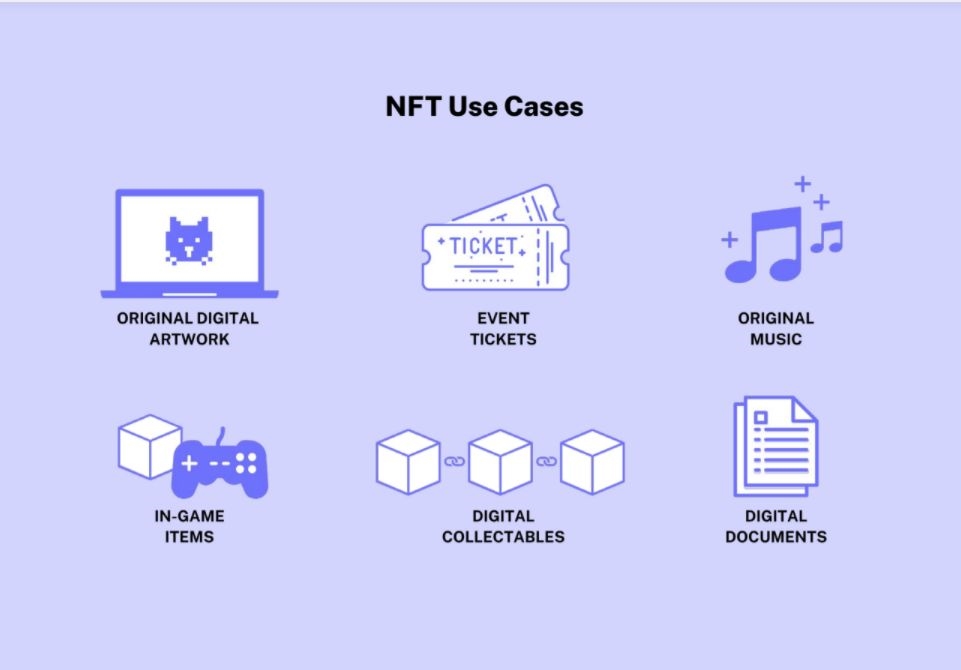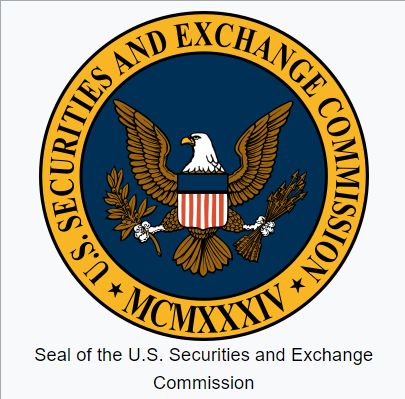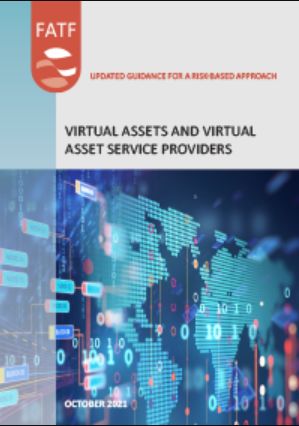NFTs stay in the forefront of popularity. The trend that started in 2021 is carrying over to 2022. Among others, they are great tools to help fight plagiarism and fraud. However, from a regulatory perspective, NFTs are still in the wild wild West. Now, we are confident that some of you, out there, like that concept. But the copyright holder of an NFT may have a different view on this.
Screenshots or right-click and save are easy things to do. However, they don’t make you the owner of an NFT. Yet, where is the line of what you can get away with and what not? That is what we are going to look at and tell you about NFT regulation.
Is Regulation Needed for NFTs?
NFT legal issues are all abound. As a result, all kinds of regulatory institutions are waking up to NFTs. The renowned Hong Kong-based media news platform mentions this in their report. So, we see SEC NFT regulations coming up in the USA. Furthermore, MiCa NFT regulation in Europe is in the waiting room. Plus, many other countries are in the mix as well. They deal with local governmental variations on this theme.
Source: Forkast NFT Report
On the other hand, we have the creators and artists, or the copyright holders. With smart contracts, creators can program NFTs. This means that they receive royalties, every time an NFT sells on and changes owners. Also, we know that there is a high demand for NFTs. Collectors want to invest for the long term in digital art. In addition, we also have people who like to flip NFTs for profit.
Risks for NFTs
All this is not without risks. Trading and collecting NFTs can have gray areas of rights. That is no wonder, considering how new NFTs are. However, the current popularity puts them more in the spotlight. For instance, not all NFT marketplaces check a sellers’ identity. In short, there is no legal protection for creators, investors, or traders. Let’s take a look at some risks with NFTs:
- Sleepminting—Somebody mints an NFT in your wallet. However, they transfer the NFTs authorship. The bad actor does this in a way that goes under the radar.
- Wash trading—The bad guys manipulate trading of specific NFTs. As a result, it looks like there is a high demand for a collection. In turn, this raises the price or the profile.
- Money laundering—Lack of regulation, like ID checks, makes it easy to launder money.
- Tokenization—Mint NFT art without an artists’ permission. This is a copyright issue.
- Insider trading—Trading with the knowledge that is not publicly available. Happens everywhere, even at OpenSea.
Furthermore, to make things more complicated. Only the artist or creator can sue over copyright. In other words, that leaves the owner of the NFT out in the cold. But what if the image on your NFT is in the public domain. You own this NFT, but have no rights to the image. Even if you have the copyright as an owner, it may be difficult to enforce this. For example, movies and online piracy are similar. It is illegal, but it is also a well-known issue.
Let’s take a look at some individual countries, and how they deal with NFT regulation.
The SEC Regulation in the USA for NFTs
So far, NFTs have managed to fly under the radar in the USA. Just as in so many other countries. However, various regulatory offices have a potential eye out for NFTs.
- The SEC—They check if an NFT is secure. If so, they fall under the same regulation as stocks. Currently, fractionalized NFTs are under scrutiny. That’s when you break an NFT up into smaller parts. As a result, you become a part-owner. $44 billion transferred in 2021 for NFTs on the Ethereum chain. In 2020, that was only $106 million.
So, no wonder the SEC starts to show an interest. Hester Peirce, an SEC commissioner, stated: “Given the breadth of the NFT landscape, certain pieces of it might fall within our jurisdiction.” She’s a Republican and aka ‘Crypto Mom’, she’s on the crypto-friendly side of the SEC.
Source: Wikipedia
- The Commodity Futures Trading Commission (CFTC)— They check if an NFT is a commodity. This falls under the Commodity Exchange Act (CEA). Quite a few intangible items fall under commodities. For example, Bitcoin and Ether. But also emission allowances and renewable energy credits. This can affect the trading in NFTs.
- The Financial Crimes Enforcement Network (FinCEN)—They control Federal anti-money laundering laws. For money laundering, they use the Bank Secrecy Act (BSA). So far, they only published general guidance on regulations that relate to digital currencies. This can impact NFTs. As long as the FinCEN and BSA don’t consider NFTs as a substitute for fiat, NFTs are fine.
The UK NFT Regulation
In April 2022, the UK had some interesting news relating to NFTs and crypto. Crypto will soon see regulation, according to John Glen. He’s Britain’s minister for financial services. Furthermore, he also said that the UK will issue NFTs and mint their own.
Also, the Royal Mint will mint the NFTs. The same institution that prints the GBP. This is part of their “emblem of the forward-looking approach”, as Glen said. The Ministry will reveal more details soon. Currently, the UK government has a pro-crypto stance.
Chancellor @RishiSunak has asked @RoyalMintUK to create an NFT to be issued by the summer.
This decision shows the the forward-looking approach we are determined to take towards cryptoassets in the UK. pic.twitter.com/cd0tiailBK
— HM Treasury (@hmtreasury) April 4, 2022
MiCa NFTs Regulation in Europe
The Market in Crypto-Assets Regulation (MiCa) has a surprising view on NFTs. They simply excluded NFTs from their regulation. Furthermore, they are not providing any answers on the legal status of NFTs. This stance may change, due to the fast-changing NFT landscape.
The FATF and Worldwide NFT Regulation
The Financial Action Task Force (FATF) talks on behalf of most G20 countries and Canada. They define virtual assets (VA) and virtual asset service providers (VASP).
The FATF definition of an NFT is; “digital assets that are unique, rather than interchangeable. They are in practice used as collectibles rather than as payment or investment instruments.” As a result, they are in general not VAs.
However, if you use an NFT for investments or payments, they can be a VA. They look more at the nature and function of an NFT. Each country must decide this on a case-by-case approach. As for a VASP, they DeFi and dApps as such. It appears that they don’t mention NFT marketplaces.
Source: FATF
NFT Regulation in China
China didn’t ban NFTs, in contrast to crypto. However, you can’t call them NFTs. Rather, they call them ‘digital collectibles’. Nonetheless, they are popular in China. For example, big Chinese firms like Alibaba or Tencent all have NFT marketplaces. China expects that the domestic NFT market will grow with 150% by 2026. That equals $4.64 billion on the local NFT table. As long as NFTs are not used for speculation, all appears to be good.
Conclusion
Currently, most countries have no regulation for NFTs. However, it seems to be a matter of time before this changes. The NFT market is a fast changing market. As a result, in many countries, local regulatory offices are starting to show an interest towards NFTs.
We wrote a few more articles on the Forkast report. Here you can find our Forkast articles on NFTs.
Finally, for more cryptocurrency news, check out the Altcoin Buzz YouTube channel.
Find the most undervalued gems, up-to-date research and NFT buys with Altcoin Buzz Access. Join us for $99 per month now.



